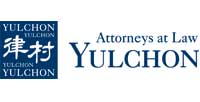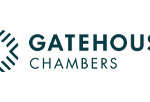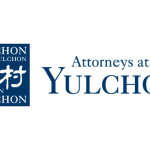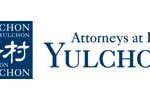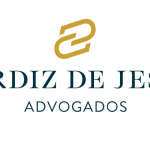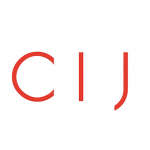Yulchon on South Korea’s recent amendments to its Act on Private International Law and their implications
There is no disagreement that South Korea is now one of the world’s largest economies. Korean companies are ubiquitous, as they are firmly entrenched in a variety of indispensable and cutting-edge industries. When it comes to legal rules that govern and/or are closely linked to international business, however, the Korean legal system has relatively lagged behind such remarkable success of Korean companies. As one example, the Arbitration Act of Korea, was amended somewhat belatedly in 2016 to incorporate the 2006 UNCITRAL Model Law on International Commercial Arbitration.
But if there is one thing Korean culture is renowned for, that is its remarkable ability to excel at playing catch up. To that end, the National Assembly of Korea passed a legislative bill for amending the Act on Private International Law (previously titled the Conflict of Laws Act) on 9 December 2021, and the amendments are scheduled to officially enter into effect six months from the date of promulgation. The amendments were heavily influenced by legal notions and rules already firmly entrenched in leading jurisdictions across the globe. Accordingly, the amendments were clearly designed to modernise Korea’s preexisting conflict of laws system.
Consisting of revisions to 7 provisions already in place and the introduction of 35 new provisions, the amendments stipulate additional rules for Korean courts to rely on when determining whether they can validly exercise jurisdiction over matters with foreign (non-Korean) elements. The previous version of the statute, while providing courts with detailed rules for determining the law applicable to (the governing law of) such matters, had largely overlooked this question. In principle, Korean judges had no specific criteria to abide by other than the ambiguous requirement that a case must have a ‘substantial connection’ to Korea, which was problematic because the statute did not define the term itself. That being so, the substantial connection standard gave judges a significant amount of discretion, and litigants for thereby found themselves in the dark when it came to predicting whether Korean courts would hear their ‘international’ cases.
The amendments seek to improve stability and predictability of the system by introducing specific regulations on international jurisdiction for different case types.
But legal certainty and predictability, of course, are some of the key virtues that all legal systems strive to achieve. Likewise, the amendments to the Act on Private International Law were carefully crafted with both in mind. For one thing, the amended statute now includes a number of specific guidelines pertaining to the notion of substantial connection. Specifically, it instructs Korean courts to take into account fairness between the parties and equity, swiftness and economy of the trial, all of which were based on the relevant precedents by the Supreme Court of Korea on this issue, in determining whether a case has a substantial connection to Korea.
And there’s more. The revamped statute features general provisions codifying international norms such as general jurisdiction, special jurisdiction, and exclusive jurisdiction. Not only that, the amendments seek to improve stability and predictability of the system by introducing specific regulations on international jurisdiction for different case types such as claims, intellectual property rights, family/inheritance, and maritime jurisdiction. Therefore, although Korean courts will continue to utilise a balancing test, their discretion has been made much more predictable.
The revised statue also provides that, in case of parallel litigations before different national courts, the Korean court may stay the Korean court proceedings at its own discretion or by either party’s request. Furthermore, the revised statue empowers the Korean courts to decide that they do not have international jurisdiction over the dispute at hand and to stay or even dismiss the Korean court proceedings.
From a broader perspective, the recent amendments to the Act on Private International Law demonstrate both Korea’s acknowledgement that its legal infrastructure has been lacking in terms of its accommodation for international business, as well as its determination to catch up with the rest of the world. Since Korea has thus laid down the groundwork, we can expect Korean parties and courts to go full steam ahead. And when it comes to speed and efficiency, one should never count Korea out.
Yulchon LLC
Yulchon LLC is a full-service international law firm headquartered in Seoul, South Korea. It employs more than 600 professionals, including more than 60 licensed in jurisdictions outside of Korea, and has offices in Shanghai, Hanoi, Ho Chi Minh City, Moscow, Jakarta, and Yangon. An acknowledged market leader in the development and practice of law, it has been named as ‘the most innovative law firm in Korea’ by the Financial Times on three separate occasions. It is frequently retained to negotiate complex transactions, help draft new legislation and regulations, and represent clients in high-stakes adversarial proceedings. As one of Korea’s premier law firms, Yulchon maintains its high standards of excellence by valuing a culture of collaborative problem-solving.
Authors
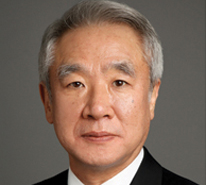
Yun Jae BAEK
Tel: +82 2 528 5473
F: +82 2 528 5228
E: yjbaek@yulchon.com
Yun Jae Baek is a partner at Yulchon LLC and the co-chair of its international dispute resolution team. He received an LLB from Seoul National University and an LLM from Harvard Law School. Mr Baek has acquired unparalleled knowledge and experience for over three decades and is qualified to practice in both Korea and New York. He is considered one of Korea’s top lawyers in the areas of international arbitration, M&A, aviation, and general corporate practice. Currently, Mr Baek serves as arbitrator for many arbitral institutions including the KCAB, AIAC, and the ICC. His reputation has led to him being selected as a leading lawyer by renowned publications such as Chambers Global and Who’s Who Legal.
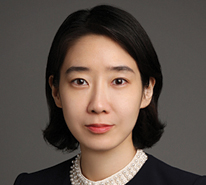
Jeonghye Sophie AHN
Tel: +82 2 528 5306
F: +82 2 528 5228
E: jhahn@yulchon.com
Jeonghye Sophie Ahn is a partner at Yulchon LLC and the co-chair of its international dispute resolution team. She received an LLB from Seoul National University and an LLM from Harvard Law School. Ms Ahn focuses on international disputes and has acted as counsel and arbitrator in international arbitrations administered under the SIAC, ICC, KCAB, and UNCITRAL Rules arising from a diverse range of commercial and corporate transactions including joint venture, intellectual property, media and telecommunication, and construction. She also specialises in arbitration-related proceedings in court and has represented both foreign and domestic corporations in seeking or resisting enforcement of awards, interim measures, and injunctions.
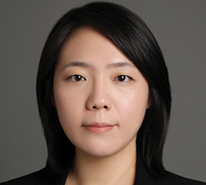
Hyunah PARK
Tel: +82 2 528 5747
F: +82 2 528 5228
E: hapark@yulchon.com
Hyunah Park is a partner in the international dispute resolution team at Yulchon LLC’s dispute resolution practice where her practice is mainly focused on domestic litigation as well as international arbitration and other types of international disputes. She also specialises in insurance law and has been dealing with many insurance-related cases, and regularly provides legal advice with regards to insurance disputes. Ms Park received an LLB from Korea University and an LLM from University College London. She is licensed to practice in Korea.
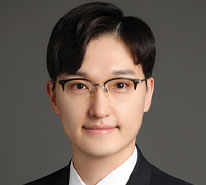
Joo Hyun (Julian) PARK
Tel: +82 2 528 5301
F: +82 2 528 5228
E: joohyunpark@yulchon.com
Joo Hyun (Julian) Park is an associate at Yulchon LLC and a member of its international dispute resolution team. He received his LLB from Seoul National University and his JD from Hanyang University Law School. He has also completed coursework for the SJD degree at Seoul National University School of Law. Mr Park practices primarily in the areas of international/domestic litigation and international arbitration, and also provides legal advice on international transactions and trade.







